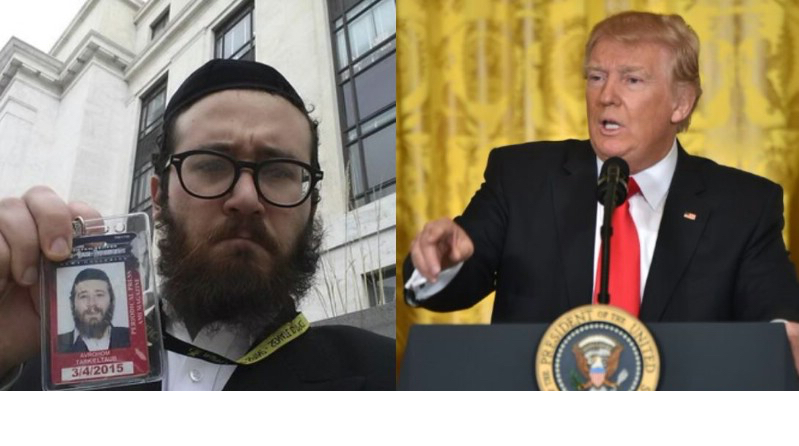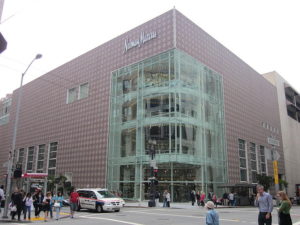
On February 14, 2017, Valentine’s Day, Israeli Prime Minister Benjamin Netanyahu met with President Trump in Washington D.C, but not to exchange gifts and chocolate. After the last eight years of icy communication caused by Netanyahu’s tense relationship with former President Obama, both Trump and Netanyahu look forward to creating a more solid relationship. Originally, both had similar views on refusing Palestine an independent state and have declared their mutual support for one another. Netanyahu was quick to meet with Trump. As one of the first leaders to engage with the new president, Israel hoped its issues would be more prioritized, especially since Trump’s son-in-law, Jared Kushner, comes from a Zionist family. Trump campaigned on some deeply pro-Israel policies and said he was planning to move the U.S embassy in Israel from Tel Aviv to Jerusalem, a city divided between Israelis and Palestinians. However, Palestine intends on making Jerusalem its capital. Now, the direction of the Palestine-Israel conflict is unclear.
Trump indicated that he wants to create a Middle East Peace Agreement, yet has sent contradicting signals to Israel and has worked hard to satisfy Netanyahu. Trump’s ambassador to Israel, David Friedman, was strongly against a two state solution. In an interview on November 7 to an audience gathered in a private home, Friedman said, “The last thing the Middle East needs right now is another Arab dysfunctional state, which is all that Palestinian state would be.” Friedman also explicitly supported construction in the West Bank, where Palestinians hope to establish their own state. Clearly staking out his opposition to the two state solution, he raised millions of dollars to fuel these settlements, which raised the ire of those in favor of Palestinian statehood.
Friedman’s nomination was opposed by five previous ambassadors to Israel, both Republicans and Democrats, before Friedman even accepted his new title. The previous ambassador’s opposition is rooted in Friedman’s public opinions opposing a two state solution which could ultimately clash with his duties as a diplomat. The Senate narrowly confirmed Friedman as Trump’s envoy on Thursday, March 23. The vote was 52 to 46, an extremely close vote and surprising amount of opposition for a diplomat to Israel, a close ally with the United States.
On the other hand, extreme groups such as the Zionist Organization of America and Christians United for Israel have backed Friedman’s nomination, pushing their own political agenda as well.
Ultimately, due to his unsubstantiated attacks on liberal politicians and organizations, Friedman lost many supporters. He compared J-Street, a Jewish nonprofit seeking diplomatic and peacefulsolution to the Israel-Palestine conflict, to “kapos,” Jewish prisoners who helped murder other Jews in concentration camps as a form of survival. Friedman also discredited The Anti-Defamation League and called Obama an “anti-semite.” Friedman continued with accusations against Hillary Clinton, saying her vice chair of of her 2016 campaign, Huma Abedin has ties to the Muslim brotherhood. While Friedman apologized forhis comments he maintains his belief that liberal Jews have not been a friend to pro-Israeli forces and have only given support to Democratic politicians as a way for those officials to say they support Jews. “When you don’t support Israel, when you don’t support traditional Jewish values, when you don’t view the Torah as a God-given legacy—no matter how religious you are, if you don’t have those views, you know you don’t really have much in common,” concluded Friedman.
Trump’s relationship with Israel is complicated. Despite Trump’s objection to any anti-semitic agenda and his attempts to curry favor with Netanyahu, he himself has been accused of degrading Jews repeatedly. Even since becoming president, Jewish groups have criticized Trump. The White House didn’t include “Jews” in their Holocaust statement; while the aim of the Holocaust perpetrated by Nazi Germany was to purify the human race, it’s primary target was Jews. Six million Jews were slaughtered in the war, mostly at concentration camps across Europe. Trump also was ridiculed for saying, “I am the least anti-Semitic, racist person. that you’ve ever seen in your entire life.” Jake Turx, a Jewish reporter, asked what Trump what he was planning to do about the visible increase in Anti-Semitism occuring following Trump’s victory. Trump then cut off Turx, declaring that the reporter had “lied” and that he should “sit down.”






